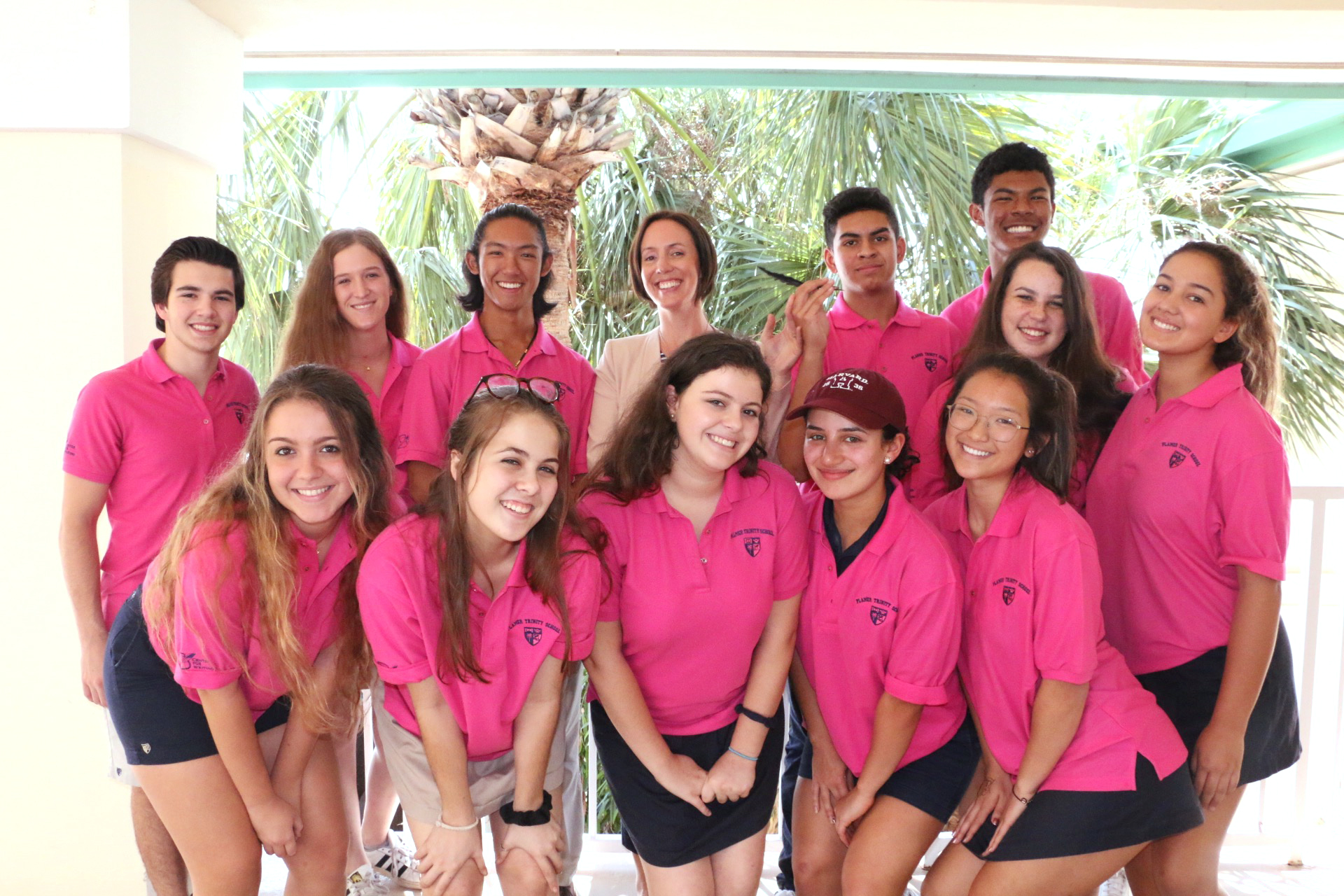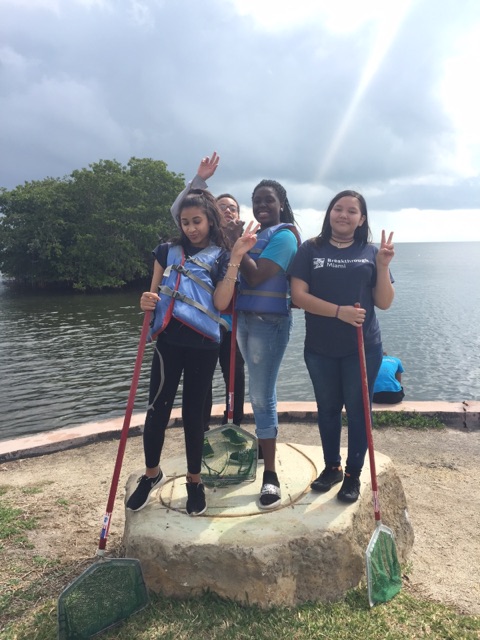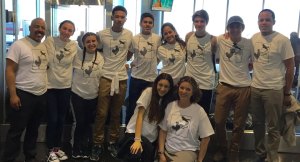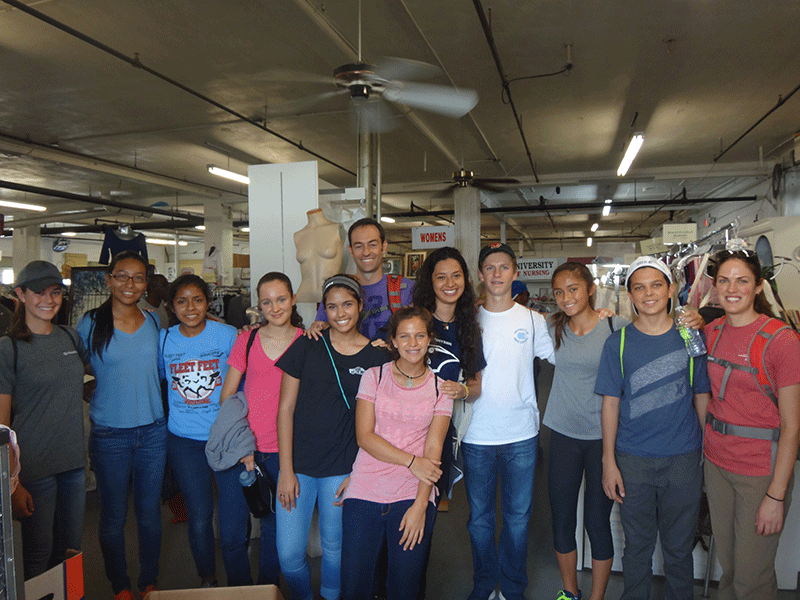Call to Action
 Thursday, January 11, 2018 at 1:59PM
Thursday, January 11, 2018 at 1:59PM By: ANDREW SHODELL '19
PTS Falconer Staff
The Keystone XL Pipeline, Rohingya Muslim persecution, Palestinian Water Crisis -- humanitarian crises exist in many places that seem too remote to be affected by simple Miami inhabitants, and mere Palmer Trinity students.
That statement could not be more false.
Not much comes to mind when one hears the town name "Immokalee." Located less than 2 hours away from Miami, Immokalee produces a humongous amount of tomatoes for the whole country, including about 90% of America's tomatoes during the winter. The demographic makeup of this agricultural center is 70.98% Hispanic, and 18.03% African American. Caucasians come in at 3.19%, and Native Americans at 1.03%. Immokalee is fueled by migrant workers mainly from Mesoamerica who needed work upon arrival in America. They currently supply tomatoes to McDonald's, Trader Joe's, and Walmart's, among other major food providers -- except notably Wendy's and Publix ever since 2001. Previous to 2001, Immokalee workers were highly susceptible to abuses in the workplace, including sexual assault, physical injuries, and lack of deserved pay. In 2010, 80% of female farm workers reported sexual harassment on the job. As to avoid completely ruining your day, you can read more about abuses at http://www.ciw-online.org/blog/tag/sexual-harassment/ rather than this article.
Due to these atrocities, the Coalition of Immokalee Workers (CIW) created the Fair Food Program. Immokalee workers united to form an organization similar to a union, in which their voices and advocacy counteract the negative intentions of large, ruthless corporations. The Fair Food Program ensures the workers access to a complaint hotline about abuses, and their deserved pay, among other benefits. As Immokalee produces so many tomatoes for America year round, the Fair Food Program is essential.
The following six quotes can be found on the Fair Food Website, http://www.fairfoodprogram.org/:
“Unique in the country” for preventing sexual violence.
-PBS Frontline Producer
Among the “most important social-impact success stories of the past century.”
-Harvard Business Review
“14 businesses are part of the [Fair Food] Program; many more should join.”
“The best workplace monitoring program.”
-New York Times
A “visionary strategy… with potential to transform workplace environments across the global supply chain.”
-MacArthur Fellowship
“One of the great human rights success stories of our day.”
-Washington Post
It seems like an easy decision for a corporation to join Fair Food: they are not endorsing and fueling slave labor, they are preventing workplace abuse, and the cost of tomatoes is cheaper. This can be seen when comparing one pound of tomatoes: a worker in Immokalee is paid almost 2 cents for collecting one pound of tomatoes, while Walmart (in the Fair Food Program) charges $2.39, and Publix (out of Fair Food Program) charges $3.59. A pound of tomatoes is bought by a Walmart consumer for 140 times the worker’s wage, while a pound of tomatoes is bought by a Publix consumer for 211 times the worker’s wage. In addition to the deplorable treatment of workers all around - especially by Publix, Walmart can be seen with a better price for the same amount of tomatoes.
Among the companies in the Fair Food Program are McDonald’s, Burger King, Chipotle, Trader Joe's, Walmart, Whole Foods, Subway, Starbucks, Ben and Jerry’s, and the Fresh Market. Publix and Wendy’s are not. Since the introduction of Fair Food, Wendy’s has been outsourcing their tomato production, opting to reap slave labor in Mexico rather than obtain local tomatoes from legal labor. Not only is this damaging America’s economy by using workers in another country, but this is endorsing slave labor and workplace abuse. More can be read about Wendy’s at the following sites:
http://www.ciw-online.org/blog/2015/03/wendys-running-responsibility/
Here is what you can do about this:
In response to Wendy’s and Publix’s efforts against the Fair Food Program, the Coalition of Immokalee Workers has provided many methods of protest.
1. You can buy tomatoes from Fair Food companies rather than Publix. Walmart, Trader Joe’s, and Whole Foods are just three supermarkets with cost-efficient tomatoes picked by well-treated Immokalee workers.
2. The following letters from http://www.allianceforfairfood.org/ have been prepared to be signed and turned in to the manager of a local Publix or Wendy’s:
3. At this site, http://www.allianceforfairfood.org/, you can sign up for email updates on the progress of the Fair Food Program.
4. You can share the already closed petition against Wendy’s at https://www.change.org/p/wendy-s-we-re-boycotting-you-until-you-support-human-rights-for-farmworkers-boycottwendys, detailing the disgraces of Wendy’s.
5. You can boycott!!! There are many appealing sources of tomatoes that submit to the Fair Food Program. The Coalition of Immokalee Workers itself has organized many public boycotts against Wendy’s in particular, as can be seen at http://www.boycott-wendys.org. The largest of these demonstrations will happen on January 18, 2018, when protesters will fast, and hold widespread protests outside of Wendy’s across the country, especially in Miami, the neighbor of Immokalee. This specific boycott commemorates the 20 year anniversary of six farm workers’ 30 day hunger strike in Immokalee.
Thank you for reading, and after having visited our neighbors in Immokalee myself, I cannot stress the gravity of this issue enough. This is happening under our noses -- less than a two hour car ride away from where we live! We have a responsibility to stand in solidarity with the historically abused and plighted migrant workers of Immokalee, especially after they have stood up for the entire country by providing fresh tomatoes year round, including 90% of tomatoes during the winter! This winter, as you're snacking on small tomatoes, slicing tomatoes into your salad, or putting ketchup on your fries, know there's a 90% chance that tomato grew in Immokalee; there's a 90% chance it was picked by the hands of a migrant worker, and shipped in a truck from Immokalee to your local market; there's an 80% chance if the worker was female that she was sexually abused in the workplace; 9 out of every 10 tomatoes you see this winter came from these Immokalee workers who are in dire need of support, from our abused neighbors that we know so little about. I apologize for bringing up such a complex humanitarian crisis in the midst of our time of celebration, the holiday season, yet these workers never truly have a holiday, and we can help them by simply doing what's stated above: buying our tomatoes from Fair Food companies, delivering letters to the manager of a local Wendy’s and Publix, staying updated, sharing information and knowledge of the issue, and boycotting. Thank you for your time and attention to this issue.
January 16 2018 edit: An earlier version had Walgreens, instead of Walmart, in the story. The bullet points were numbered incorrectly.
 The Falconer | Comments Off |
The Falconer | Comments Off | 






